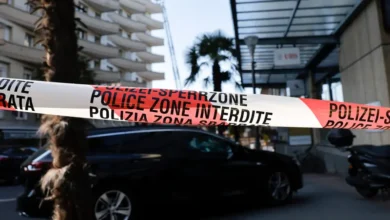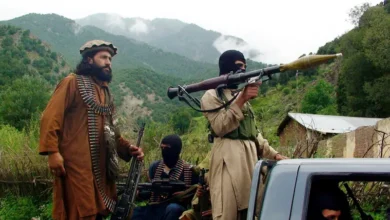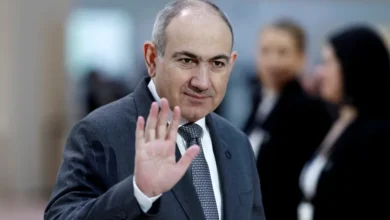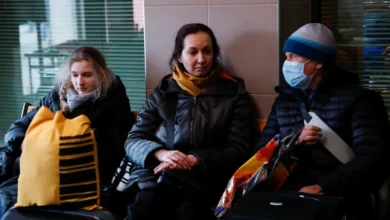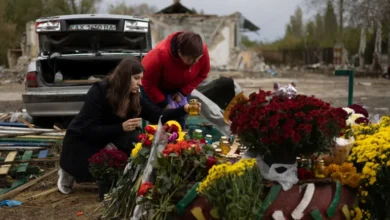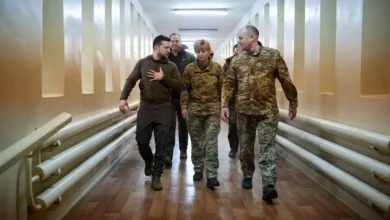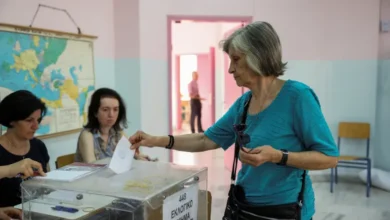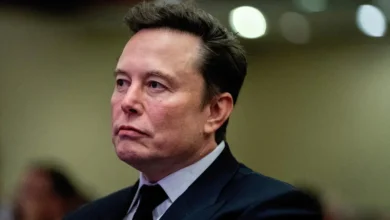‘Beacon of hope’: Amid Gaza war, Indian Muslims take care of synagogues
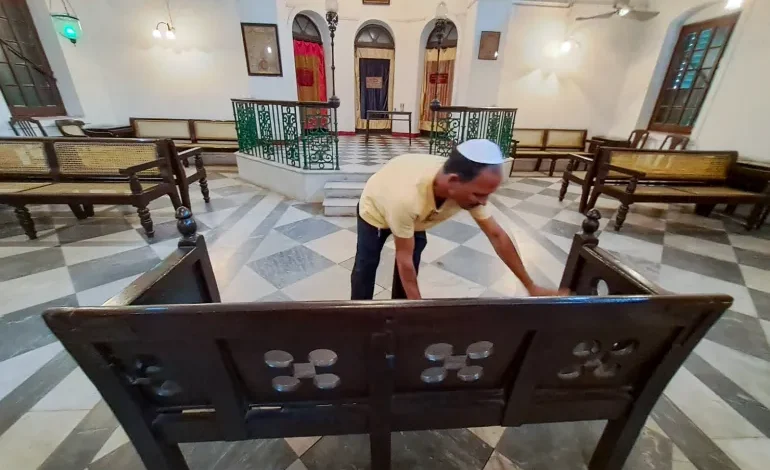
The afternoon sun streams through tall stained-glass windows into the Maghen David Synagogue in the city of Kolkata, the capital of the eastern Indian state of West Bengal.
Anwar Khan, in his starched white uniform, with the name of the synagogue embroidered on his breast pocket, is at work. He puts the ornately polished teakwood chairs with well-kept rattan seats in symmetrical lines. Visitors to the synagogue are rare these days as there are very few Jewish people left in the sprawling city.
But that doesn’t dim Khan’s diligence or pride in his job. The 44-year-old is the synagogue’s chief caretaker. He dusts, sweeps and swabs to keep the temple clean.
Some 4,000km (2,485 miles) away, Israel has been bombing Gaza relentlessly for a month now, killing more than 10,000 Palestinians. The assault began on October 7 after Hamas fighters entered Israeli territory, killed more than 1,400 people and took more than 200 people captive.
But in the tranquil halls of the Maghen David Synagogue, the Palestine-Israel conflict finds no echo.
“They stand and do their namaz [prayer]. We sit and do our namaz. That is the only difference between us,” says Khan, who since the age of 20 has been a caretaker at the 140-year-old Renaissance-style synagogue on Brabourne Road in Kolkata’s busiest business and wholesale market district.
Until about 75 years ago, the synagogues in Kolkata throbbed with life. The first Jews arrived in the city towards the end of the 18th century. Today, the number of synagogues in the bustling city – once the capital of the British empire in the Indian subcontinent – has shrunk from five to three, while the size of the Jewish community is down from more than 5,000 at its peak to just 20.
But there has been one constant for more than two centuries: the caretakers of the synagogues. For generations now, they have come from a village called Kakatpur in Puri district, about 500km (310 miles) south of Kolkata in the neighbouring Odisha state.Between the three synagogues in the city, there are six Muslim caretakers, all of whom stay on the premises in quarters provided for them and go home occasionally to visit their families. They start work early in the day, cleaning, dusting, polishing and making sure the lights and other electrical devices are in order. They also escort guests and visitors around, something that happens seldom these days.
‘Sad that Muslims and Jews are fighting’
It is not as if the Jews of Kolkata or the Muslim caretakers of the synagogues are oblivious to the horrors of the Israel-Hamas war or Israel’s bombing of Gaza.
Like many other cities around the world, Kolkata, too, has witnessed pro-Palestinian protests by left-leaning activists and some Muslim groups. Muslims comprise about 27 percent of the population of West Bengal, where a political party opposed to the Hindu nationalist Bharatiya Janata Party (BJP) is in power.
But the Muslim caretakers say they have come under no pressure from their families or the community for working at synagogues.
